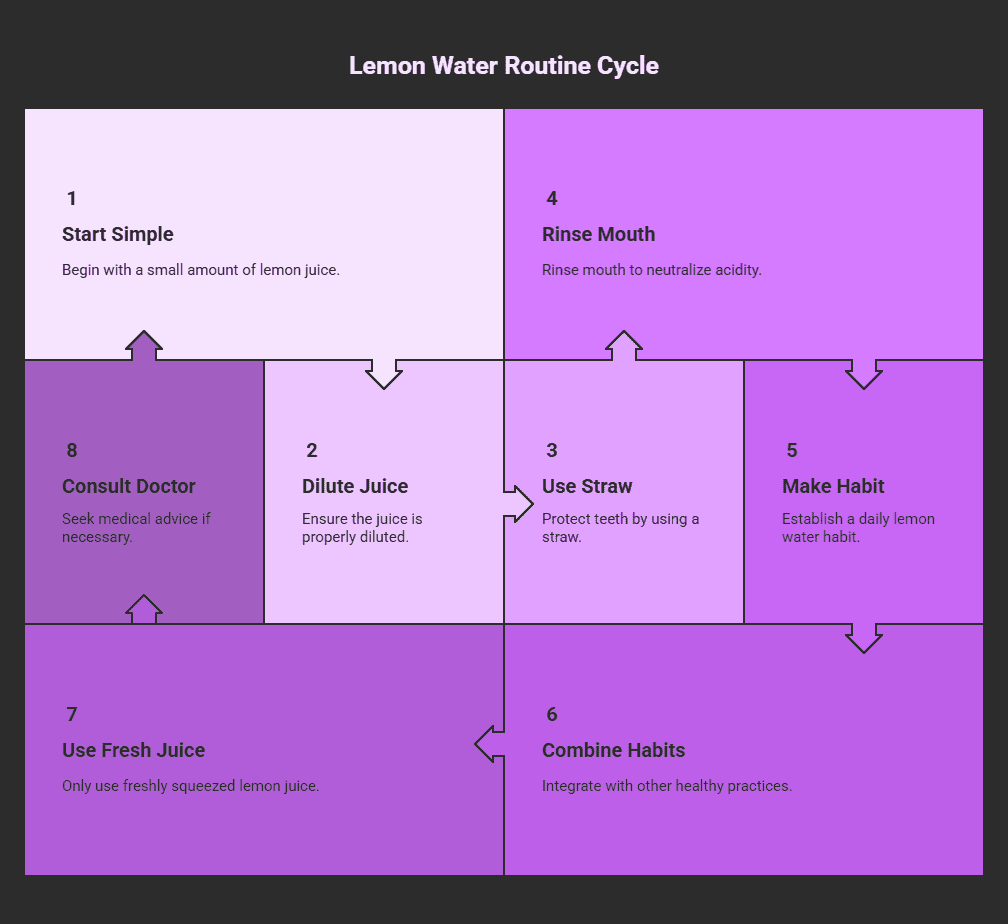Believe it or not, lemon water is becoming more and more popular as a natural way to lower uric acid levels. They say it’s a morning ritual that keeps gout away. But does it really live up to the hype? Let’s get to the bottom of it and see if the science backs up the hype..
The Basics: What Is Uric Acid, Anyway?
When your body breaks down purines, which are found in red meat, seafood, alcohol, and other foods, it makes uric acid. Your kidneys usually get rid of most of it. But when levels go over about 6.8 mg/dL, problems can start, like gout attacks, kidney stones, and swelling. Silent hyperuricemia can be around for a while without you knowing it, but then you wake up with a painful, swollen joint.
So, drinking enough water is important. Plain water helps get rid of uric acid quickly. But what about lemon water? That water has vitamin C, citrate, and a sour taste, all of which could help in addition to just hydrating.
How Lemon May Help
1. Alkalizing Effect
Even though lemon is acidic on its own, once metabolized it can actually raise urinary pH. A slightly more alkaline urine may help dissolve uric acid crystals, helping your body clear them more easily. Kind of clever, right?
2. Vitamin C & Antioxidants
Lemons are packed with vitamin C and flavonoids, natural antioxidants. These compounds may reduce inflammation and slow oxidative processes tied to uric acid production.
3. Potassium Citrate Components
Researchers have found that certain water-soluble extracts of lemon, especially those rich in potassium citrate, may help reduce uric acid without burdening the kidneys, so it’s not just acid, but the mineral profile at play.
What the Research Shows
Human Studies
- A small trial had participants drink juice from two lemons in two liters of water daily for six weeks. Result? Serum uric acid decreased noticeably, and urine became more alkaline. Kidney function even showed modest improvement.
- Other combined human-and-animal studies showed that drinking about one lemon’s worth of fresh juice daily lowered uric acid in both people and lab mice.
Animal & Mechanistic Studies
- Mouse studies confirmed that potassium citrate-rich lemon extracts can reduce blood uric acid by affecting how it’s transported in the body, without acting like mainstream gout drugs.
So… Does It Work?
Yes, Evidence Suggests:
- Regular consumption (1–2 lemons daily, diluted over several weeks) does lower uric acid, usually by around 1–2 mg/dL.
- Raising urine pH helps dissolve crystals.
- It’s kidney-friendly and low-risk.
- Offers added vitamin C and antioxidants.
But There’s a Catch:
- The studies are small, nothing massive or definitive.
- Dosages vary (one lemon vs. two, different water amounts).
- We don’t have strong proof that it directly prevents gout flares, just that it lowers uric acid.
- Effects are modest. Not a replacement for prescription meds in serious cases.
- Potential downsides? Enamel erosion, reflux if not diluted, and mouth irritation.
Tips for Using Lemon Water

- Start simple: try half to one fresh lemon in ~300–500 ml water daily.
- Always dilute, straight lemon juice is rough on enamel and digestion.
- Use a straw and rinse your mouth after drinking.
- Make it a habit: room-temperature or warm lemon water each morning can kickstart hydration.
- Combine with good habits: stay hydrated, limit purine-rich foods, and maintain a healthy weight.
- Use only fresh juice, not bottled or concentrated.
- Check with your doctor, especially if you’re already on uric-acid medications.
How It Fits in Your Life
Lemon water isn’t a cure, but it’s a helpful, gentle helper. Picture it as a daily ritual that supports kidney health, mildly alkalizes urine, and adds antioxidants. Especially useful for:
- Those with mild-to-moderate hyperuricemia are aiming to prevent gout.
- Folks already on medication who want low-risk, natural support.
- Anyone wanting to boost hydration and vitamin intake.
Final Verdict: Who Should Try This?
- Individuals with moderately elevated uric acid are looking for a natural boost.
- People on medication seeking supportive lifestyle additions.
- Anyone who wants a refreshing, daily wellness habit.
Just be cautious if you have severe reflux, enamel sensitivity, or are prone to mouth issues. And always loop in your healthcare provider.
FAQs – Quick Answers to Your Questions
1. How much lemon water?
Typically, juice from 1–2 lemons is diluted into about 1–2 liters of water daily. Even one lemon can make a difference.
2. When will I see results?
Most people notice changes around six weeks in.
3. Can I just take vitamin C pills instead?
Supplements help, but they don’t replicate lemon’s alkalizing and citrate benefits.
4. Does bottled lemon juice work?
Unlikely. Fresh juice has components that bottled versions often lack.
5. Side effects?
Watch for enamel wear, reflux, and oral irritation. Use a straw, dilute, rinse your mouth, and avoid brushing right away.
6. Will it stop gout attacks?
We don’t have direct evidence, but lowering uric acid and raising urine pH can help reduce risk.
7. What about other natural remedies?
Green tea, cherries, and general hydration also support uric acid control.
8. Who should avoid it?
If you have severe reflux, acid sensitivity, or dental issues, take it slow and check with your dentist or doctor.
The Bottom Line
Lemon water is cheap, gentle, and has some scientific support. It’s not a miracle cure, but it helps lower your uric acid levels, makes you feel better, and keeps you hydrated. And it tastes great too.
Try it out. Make it a part of your day. Think about each sip. And, as always, follow your doctor’s advice when you do it.
















